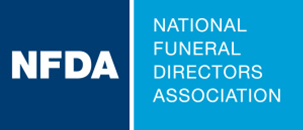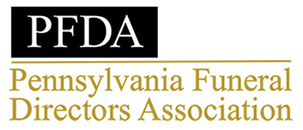
Losing a loved one is an incredibly painful experience, and during these difficult times, funeral hymns and songs offer comfort, support, and a way to honor cherished memories.
Music has the unique ability to convey deep emotions, providing a universal language that transcends words.
At funerals, it plays a vital role in creating a heartfelt atmosphere that allows mourners to reflect, remember, and find solace in shared grief. Let’s take a look at why hymns and songs are so important for funerals.
1. The Tradition of Funeral Music
The use of funeral songs and hymns dates back centuries, with different cultures and religions incorporating music into their mourning rituals. In Christian traditions, hymns have long been a staple of funeral services, offering messages of hope, faith, and eternal peace. Judaism incorporates psalms and chants, while Buddhist ceremonies often include chanting and instrumental music to aid the soul’s journey. These traditions highlight how music has always been a crucial part of saying goodbye to loved ones.
Over time, funeral music has evolved, reflecting societal changes and personal preferences. While traditional hymns remain a significant part of many services, modern funerals now often include a mix of classical, contemporary, and personalized selections that best represent the departed soul.
2. Emotional and Psychological Impact
Music is an expression of the heart, allowing people to process emotions that words alone cannot capture. Funeral songs and hymns can bring back cherished memories, celebrate a life well-lived, and provide comfort when grief feels overwhelming. The calming effect of music is well-documented in psychology, with studies showing that it helps reduce stress and promote emotional healing.
In moments of deep sorrow, music serves as a powerful tool to guide mourners through the grieving process. Whether it’s a soothing melody or a deeply meaningful hymn, these songs create a space where emotions can be freely expressed and shared.
3. Choosing the Right Hymns and Songs
Selecting the appropriate funeral hymns and songs can be a deeply personal decision. Several factors come into play, including the religious beliefs of the deceased, their preferences, and the overall tone of the service.
For religious services, classics such as Amazing Grace, Ave Maria, and How Great Thou Art remain timeless, offering messages of hope and divine peace. For a more personalized touch, families may choose songs that held special meaning to their loved one, whether it be a favorite hymn or a song that speaks to their life and legacy.
Involving family members in the selection process can make the service more meaningful. Encouraging loved ones to share songs that remind them of the deceased can create a more intimate and heartfelt tribute.
4. Modern Trends in Funeral Music
As funerals become more personalized, the choice of music has expanded beyond traditional hymns. Many families now incorporate contemporary songs that reflect the spirit and personality of their loved one. Tracks like Somewhere Over the Rainbow, You Raise Me Up, or even songs from an individual’s favorite artist are becoming more common in services.
Technology has also changed how music is used in funerals. Digital playlists, live-streamed services, and pre-recorded music ensure that the perfect songs can be played regardless of location. This shift allows families to create truly unique memorials that celebrate the essence of their departed loved one.
5. The Role of Hymns and Songs in the Healing Process
Funeral hymns and songs are more than just music; they are a source of healing. They provide a sense of closure, helping mourners come to terms with their loss. The familiarity of certain hymns can bring great comfort, reminding those grieving that they are not alone.
Music also helps people feel connected to their lost loved ones. Many find solace in playing the songs their loved ones cherished, keeping their memory alive through melody and lyrics. Additionally, communal singing during a service fosters a sense of unity, allowing those in attendance to support one another in their shared grief.
Frequently Asked Questions
Below are some commonly asked questions to consider:
1. What if my loved one did not have a favorite song or hymn?
If your loved one did not have a specific favorite, consider choosing a hymn or song that aligns with their personality, beliefs, or the emotions you want to express during the service. You can also consult with family members or a funeral director for suggestions.
2. Can we use recorded music instead of a live performance at a funeral?
Yes, recorded music is a common choice for funerals, especially if a specific version of a song is preferred. Many funeral venues have sound systems that allow easy playback of chosen songs, ensuring the service feels personal and meaningful.
3. Are there non-religious songs that work well for funerals?
Absolutely. Many secular songs beautifully capture themes of love, loss, and remembrance. Some popular choices include Tears in Heaven by Eric Clapton, My Way by Frank Sinatra, and Wind Beneath My Wings by Bette Midler. The most important factor is selecting a song that resonates with the memory of your loved one.
Finding Comfort Through Funeral Hymns and Songs
Funeral hymns and songs hold immense significance in times of loss, offering comfort, remembrance, and a path toward healing. Whether through traditional hymns, contemporary songs, or deeply personal selections, music has the power to bring people together and provide solace during life’s most difficult moments. As families gather to say their final goodbyes, these melodies serve as a touching tribute to the life and legacy of their loved ones.
Choosing the right songs for your loved one’s funeral can be difficult to do if you’re not sure where to start. Get in touch with a reputable professional funeral service provider to help you.



